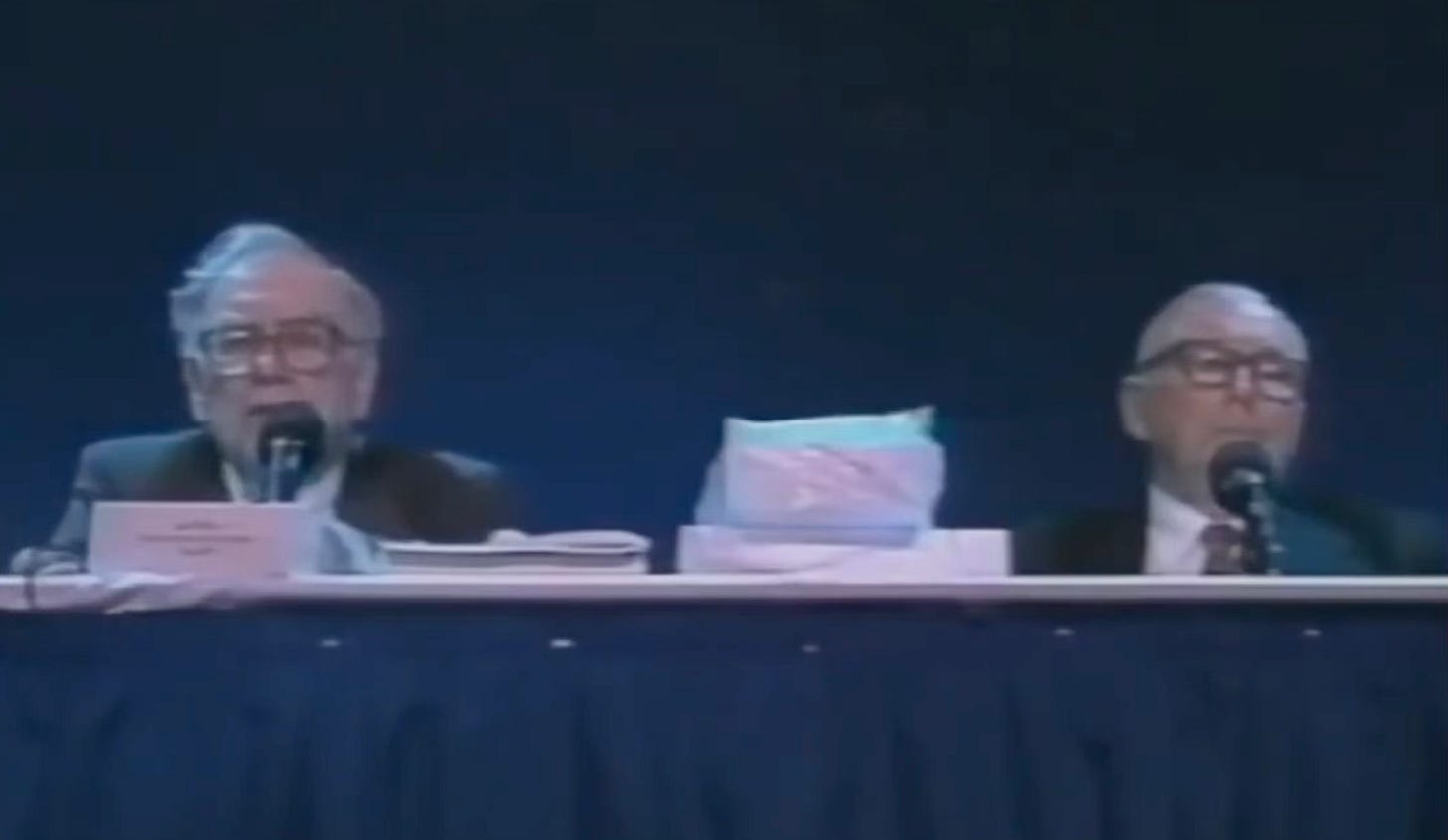Uncommon Sense: 1999 Berkshire Hathaway AGM
“If you get into a wonderful business,” said Warren Buffett, “the best thing to do usually is to stick with it.”
Warren Buffett and Charlie Munger never faced many pointed questions during decades of Berkshire Hathaway annual shareholders meetings.
After all, what was there really for anyone to complain about?
The 1999 meeting was something of an exception, as shareholders openly wondered (and some grumbled) why Berkshire remained on the sidelines as the rest of the market went wild for technology stocks.
What follows is not an exhaustive recap of absolutely everything said that day, but rather a collection of the big ideas and lessons from the 1999 Berkshire AGM.
A wonderful industry does not necessarily make for a wonderful investment. Although exuberance for technology and the internet had hit a fever pitch among the public (and plenty of Berkshire Hathaway shareholders), Warren Buffett instead urged restraint. He pointed to the two most important industries from the first half of the century — automobiles and airplanes — and noted that neither one produced easy, automatic wealth for investors. “Very few people got rich by riding the back of the auto industry,” he said, “and probably even fewer got rich by participating in the airline industry over time.”
Basically, even if the internet ended up reshaping the world every bit as much as cars and planes had before it, that alone would not guarantee riches for those betting on it. “You do not want to necessarily equate the prospects for growth of an industry with the prospects for growth in your own net worth by participating in it,” added Buffett. “The internet will have a huge impact on the world, but I’m not so sure that makes it an easy investment decision.”
Change is more foe than friend. And, as such, Berkshire looks for businesses that are not terribly susceptible to change — which happily insulate the conglomerate from the twin specters of online competition and technological obsolescence. “We have more of the stuff that’s basic and hard to obsolete than many other corporations do,” said Charlie Munger. “We’re looking for the absence of change to protect ways that are already making a lot of money and allow them to make even more money in the future,” added Buffett. “So we look at change as a threat. Whenever we look at a business and see lots of change coming, nine times out of ten we’re going to pass.” Berkshire might miss out on the occasional big winner, but should also sidestep catastrophic failures. Both men are more than happy with that arrangement.
Contrary to the caricature, Buffett holds no particular animus towards technology. He simply does not understand the industry well enough to risk his shareholders’ hard-earned money — and finds it far easier to foresee the financial future of the Coca-Colas of the world as opposed to Microsoft. But that’s not necessarily the case for everyone. “Somebody that has a lot of familiarity with software may very well see it [differently],” said Buffett. “If they have superior knowledge and they act on it, they’re entitled to make money from that superior knowledge.”
The internet puts a premium on trust. And that’s great news for Berkshire. “You are getting further and further removed from the face-to-face dealing,” said Buffett, “where you can go back to the store the next day or look at the person who sold it to you the next day and get an adjustment.” As e-commerce erodes the handshake deals and eye-to-eye communication of yore, the Berkshire name — and the halo it extends to its subsidiaries — puts customers at ease when purchasing online.
A company best serves society with efficient and essential service. Save the flowery speeches, the political posturing, and the armchair activism. Capitalism’s subtle grace lies in alchemizing profits into progress — all without a single sermon. GEICO, for example, contributes more by providing affordable automobile insurance at prices far below competitors than by any sweeping philanthropic gesture. “We do not think that corporations, generally, should be passing out money to the pet charities of the CEO,” said Buffett. “The best contribution we can make — over 10-15 years — is finding ways to deliver goods and services, that people want, to them at lower cost than the alternatives that were previously available to them.”

